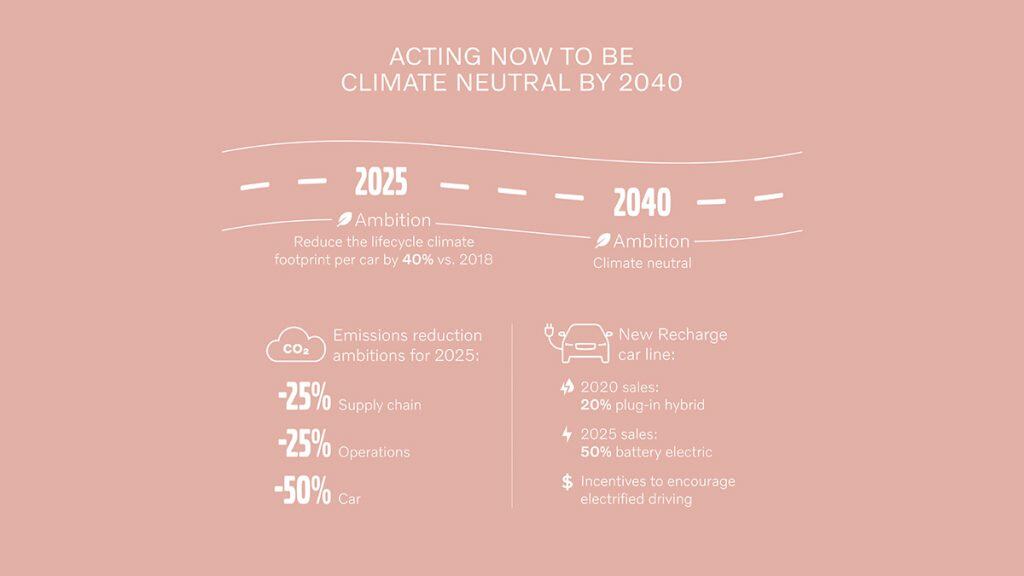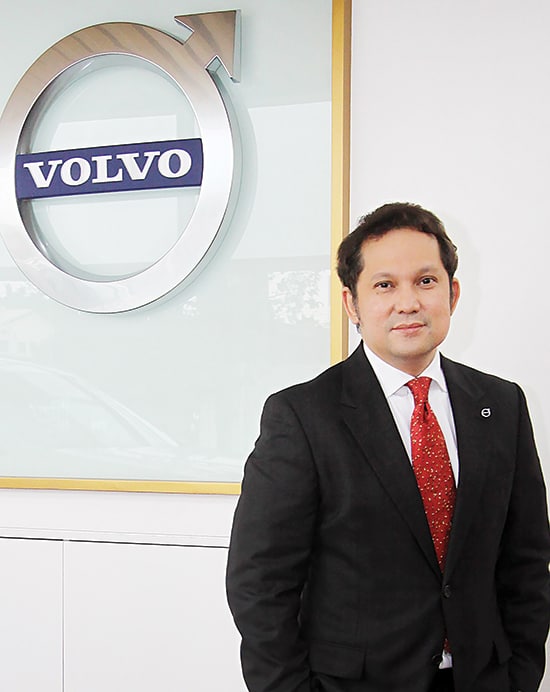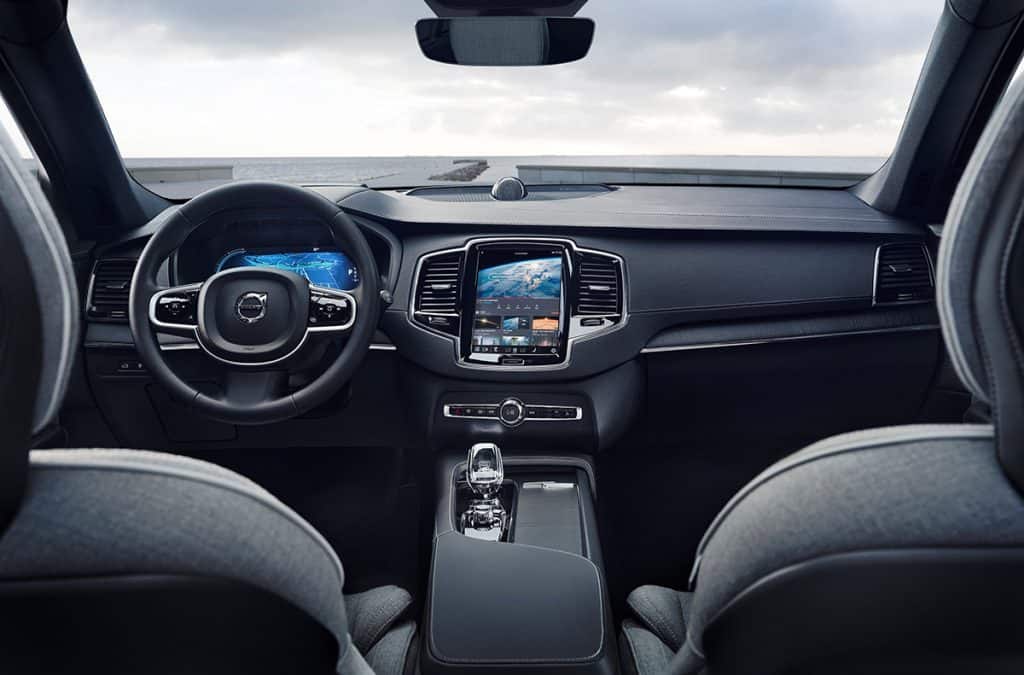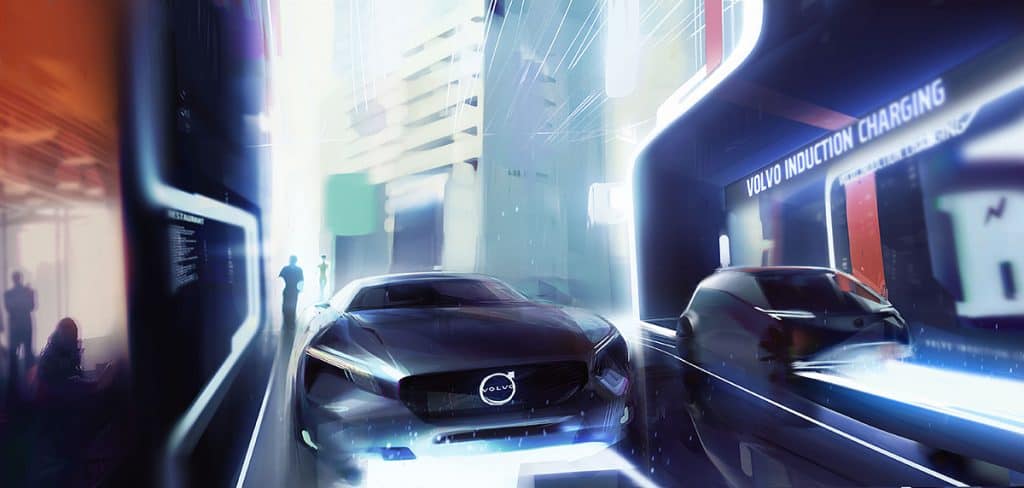Even before everyone hopped on the sustainable mobility train, Volvo was already leading the way in its efforts to curb its carbon footprint. Recognizing that cars are part of the eco-problem, Volvo, very early on, owned up to its responsibility and started its journey to becoming climate neutral.
Electrification and sustainability
Volvo Cars is the first established carmaker to commit to all-out electrification in 2017. Because of this, the premium carmaker has been recognized by the United Nations (UN) and other global environmental non-profit groups for its ground-breaking electrification strategy. The UN announcement was a watershed moment in the industry, and Volvo Cars’ example has been followed since by other carmakers who have made similar announcements.
Aside from this pronouncement, Volvo Cars aims for half of its global volume to consist of pure electric vehicles by 2025. The company also announced that it aims to sell only pure electric cars by 2030. Reflecting Volvo Cars’ ambition to be an industry leader in safety, the upcoming generation of Volvo models also aims to set new standards in that area.
In the Philippines, Volvo was also the first car brand that launched a Plug-in Hybrid variant for a range of models. In April this year, a range of boost hybrids were introduced in the Volvo XC60, XC90, and S90 models.
Is electrification enough?
Volvo Cars believes that electrification is not enough to help address the environmental issues stemming from the automotive sector. The company recognizes the need to reduce all direct and indirect emissions by tackling carbon dioxide (CO2) within their supply chain and operations. This also means taking steps toward becoming a climate-neutral company by 2040, embracing the circular economy, and being a recognized leader in ethical and responsible business.

Becoming climate-neutral
As a mobility provider, Volvo recognizes its role in the climate change problem. Thus, it has mapped out actions and milestones to help alleviate the crisis.
Aside from reducing tailpipe emissions by 50 percent come 2025 (2018 baseline) through electrification, Volvo also aims to reduce CO2 lifecycle emissions per car by 40 percent between 2018 and 2025.
Volvo has already taken steps toward climate-neutral manufacturing. As early as 2008, all of their European plants ran on hydroelectric power. Today, all of Volvo Cars’ European plants run on 100 percent clean electricity, while its Torslanda plant in Sweden is fully climate-neutral.

Embracing circular principles
With the world’s natural resources being limited, Volvo has committed to becoming a circular business by 2040. Steps to maximize resource efficiency across components, materials, and vehicles are taken. In addition, focus is trained on eliminating waste, making greater use of recycled material, and remanufacturing and reusing parts.
One of the circular economy ambitions of Volvo is to significantly increase the share of sustainable recycled and bio-based materials in Volvo vehicles by 2025. Volvo currently remanufactures 36 different component groups, including engines, gearboxes, turbo compressors, and clutches.
Fostering strong ethical company culture
The industry is changing fast. Volvo’s business and sustainability ambitions are bold. To achieve these, the company recognizes that being open to all perspectives – with diverse and inclusive teams in place to make better quality decisions – is critical to their ongoing success.
Similarly, Volvo believes that creating a robust ethical culture provides a solid platform for launching its various goals and objectives. Ethical leadership has been a fundamental part of their business culture. As a result, Volvo Cars was recognized as the World’s Most Ethical Company® by the Ethisphere Institute for the third consecutive year in 2019.
On top of this, Volvo Cars is also serious about wanting to reduce its impact on the planet. Knowing that their responsibility extends beyond their walls, the what, how, and where of their sourcing activities, all must be accounted for when calculating their impacts.
Volvo Cars aims for transparency and traceability throughout their entire sourcing process. For example, Blockchain technology is used as part of their commitment to the responsible sourcing of batteries.
An electrifying future
Electrification plays a significant part in Volvo’s vision to be a climate-neutral company by 2040. However, Volvo Cars believes that there are other components to make this sustainability journey a success. At the same time, the company recognizes that collaboration is vital, especially when dealing with challenges.
“We are happy that other car manufacturers, suppliers, and other stakeholders in the industry are taking cues from Volvo’s sustainability initiatives. It is only in doing this together that we can create a bigger wave of change,” shares Atty. Albert B. Arcilla, President & CEO of Volvo Philippines.
Volvo’s sustainability strategy is fully integrated into its corporate strategy and brand ethos. From the onset, Volvo has remained true to its mission of making life easier, better, and safer for everyone. As it continues its course as one of the fastest growing premium brands, it sets a new global people standard by setting sustainability, safety, technology, and care for people as its driving force.
For Volvo, electrification is not enough to save the planet. It is, however, enough to jumpstart a revolution that will give people the freedom to move in a personal, sustainable, and safe way.



